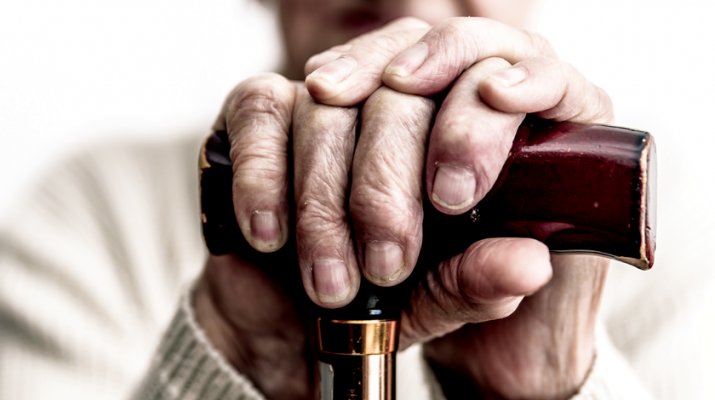When sun sets, dementia patients experience worsened symptoms
By Barbara Pierce
“Sometimes in the evening, my husband is agitated, confused, and a handful to deal with,” writes a woman online.
Another writes: “I care for my husband’s grandmother, but when the sun sets, it’s easy to consider putting her in a facility. She completely loses it and starts looking for kids and dogs that aren’t there, talking to herself, and is obsessed with needing all the lights off.”
“Many times a person with dementia can suffer from something called ‘sundowners syndrome,’ a neurological occurrence wherein a person with dementia exhibits increased confusion and restlessness or delirium,” said Chris Vitale, owner and operator of several assisted living communities licensed to provide services to people with a diagnosis of dementia.
One of the facilities Vitale operates is The Terrace at Woodland in Rome. The Terrace is an assisted-living community with a “Memory Care Neighborhood” specially designed to meet the needs of people who require more supervision and services as a result of having memory loss.
In sundowning, the person may become agitated, confused, disoriented, angry, paranoid, or have hallucinations or delusions.
Though sundowning behavior usually occurs in people with Alzheimer’s or other dementia, it can occur in older people who do not have dementia. As they become fatigued at the end of the day, they may have trouble concentrating, and grow agitated and even confused. Sundowning occurs quite often in hospitalized patients.
While the cause is unknown, most believe it is related to the stress and sensory overload the person has experienced during the day, and just pure exhaustion. No matter what the cause, it creates severe stress for the caregiver and patient.
Though sundowning behavior can’t be prevented, Vitale shared steps to help reduce this behavior.
He said although every person is different, some of the following strategies have been shown to lessen stress for both caregiver and patient:
— Keep a routine: Stick to a regular schedule. Take walks or exercise at the same time each day, preferably early in the day. Eat an early dinner and go to sleep at the same time each night. As eating a large meal shortly before bedtime can increase agitation, serve a larger meal at lunch.
Include a bedtime routine in your schedule. Simple cues like taking a shower, drinking a cup of tea or playing soft music can signal that it’s time to start calming down for bedtime.
Creatures of habit
If you need to make changes in your routine, change gradually.
Vitale said, “At our community, having a regular schedule often involves having the same care-staff on most days so the resident sees the same people on a regular basis and gains comfort from that.”
— Keep the individual engaged in meaningful activities: Help the individual stay active during the day. Getting stimulation and exercise will help them feel more relaxed at bedtime. Being active during the day promotes better sleep.
“In our community, we engage residents in activities such as baking, scrapbooking, gardening, and accompanying staff to deliver mail. We want residents to feel like they are helping and part of something important,” he said.
— Never say “no”: “All you do when you say ‘no’ to a person with dementia is to agitate them further,” Vitale said. “At The Terrace, we make every effort to minimize stress to the person by not restricting their free movement. The doors from the memory care unit are locked. If a resident tries to go out, a staff person joins him, lets him out, and walks with him.”
“Speak slowly and clearly when talking to the person, using simple language that has a positive inflection and body language. Even if the person has difficulty understanding conversation, your inflection and body language will impact the way they feel or perceive you,” he said.
Other experts add:
— Curb caffeine and alcohol: Limit caffeine to early in the day; better yet, eliminate it altogether as it can stay in one’s system for up to 16 hours. Also, eliminate alcohol.
— Schedule appointments and activities in the morning to prevent exhaustion.
— Prevent overstimulation by reducing noise from televisions or stereos. When the patient begins to feel symptoms, he or she should either rest or do something familiar that provides relaxation.
“Make sure to communicate clearly to your primary care physician about the behavior changes the person is experiencing,” Vitale added. “Keep notes so you can explain to the physician what symptoms he or she is experiencing.
Each person has different triggers for sundowning. Keep a daily log and jot down events that seem to trigger symptoms.
For instance, too much noise or the act of preparing dinner could be a trigger. Once you recognize these triggers, you can work on ways to avoid them.
For more information, call the Alzheimer’s Association at 1-800-272-3900.

